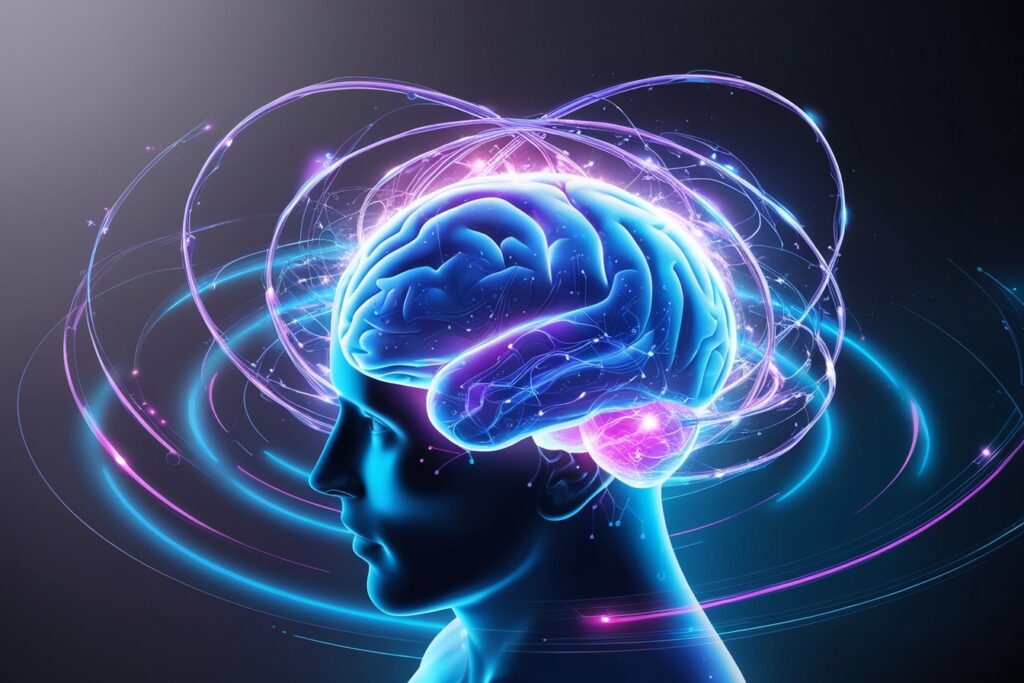
In a world driven by competition and innovation, it’s no surprise that many people are exploring ways to improve their mental performance.
From college students cramming for exams to professionals navigating high-pressure careers, the idea of “hacking” your brain for better focus, memory, or creativity is enticing.
But how safe are DIY cognitive enhancements?
And are the benefits worth the potential risks?
Let’s dive in to understand the science, the promise, and the pitfalls of this growing trend.
What is DIY Cognitive Enhancement?
DIY cognitive enhancement refers to self-directed efforts to improve brain function using various methods, such as supplements, brain training exercises, or even lifestyle modifications.
While some approaches are backed by science, others venture into unregulated, experimental territory.
This phenomenon has been fueled by the rise of nootropics—substances that claim to enhance mental performance.
These can range from natural supplements like caffeine and ginseng to synthetic drugs like modafinil and racetams.
Additionally, technologies like brain stimulation devices and meditation apps are increasingly being marketed as tools to “hack” your brain.

Potential Benefits
While the risks of brain hacking are real, proponents highlight its potential benefits.
When done responsibly, some methods may lead to noticeable improvements in cognitive function.
Improved memory and focus
Who wouldn’t want a sharper memory or laser-like focus?
Studies have shown that substances like caffeine and L-theanine can enhance attention and working memory temporarily.
Modafinil, a prescription drug originally developed for sleep disorders, has also been shown to improve focus in healthy individuals under controlled conditions.
Fact: According to a study in European Neuropsychopharmacology, modafinil enhances cognitive performance in tasks requiring sustained attention, especially in sleep-deprived individuals.
Enhanced creativity and problem-solving skills
Creativity isn’t just for artists—it’s essential for problem-solving in everyday life.
Techniques like mindfulness meditation and “flow state” training are often associated with enhanced creative thinking.
Natural supplements like omega-3 fatty acids, found in fish oil, are also linked to better cognitive flexibility.
Increased productivity and efficiency
Tools like brain-training apps (e.g., Lumosity or Elevate) claim to boost productivity by improving mental agility.
Meanwhile, microdosing psychedelics—using very small amounts of substances like LSD—is gaining popularity among some professionals for its alleged ability to improve focus and efficiency.
Reduced stress and anxiety
Meditation, yoga, and adaptogenic herbs like ashwagandha or rhodiola are commonly used for reducing stress while supporting mental clarity.
These methods aim to regulate cortisol levels and balance your overall mood.

The Risks and Uncertainties
While the allure of cognitive enhancement is strong, it’s essential to understand the risks.
Many DIY approaches lack scientific validation and come with significant uncertainties.
Lack of regulation
The nootropics industry, particularly for over-the-counter supplements, is largely unregulated.
A report by the U.S. FDA warns that many products labeled as “cognitive enhancers” contain undeclared or harmful ingredients.
Without stringent oversight, consumers are left vulnerable to mislabeled or contaminated products.
Potential side effects
Physical side effects
Even everyday substances can cause problems when not used carefully:
- Caffeine: While a little can wake you up, too much may cause jitters, trouble sleeping, or a racing heart.
- Synthetic nootropics (like modafinil): These can lead to headaches, nausea, or dizziness in some people.
Cognitive Side Effects
Ironically, substances meant to boost brainpower can impair judgment or lead to overconfidence.
For example, excessive use of stimulants like Adderall may cause risky decision-making or poor emotional regulation.
Long-term consequences
The long-term effects of many cognitive enhancers are still unclear.
Using unregulated or synthetic substances over time could harm your brain, cause dependency, or lead to other health issues.
Individual variability
Everyone responds differently to these substances.
Factors like your genetics, overall health, and even your diet can affect how your body reacts.
What works well for one person might not work at all—or could even be harmful—for someone else.

Safe and Effective Brain Enhancement
The good news? There are safer, scientifically-backed ways to enhance your brain without resorting to risky shortcuts.
Enhancing your brainpower doesn’t always mean turning to substances or supplements.
Building a strong foundation through healthy lifestyle choices and scientifically supported methods can make a big difference.
Here’s how:
Build a healthy lifestyle
Your brain works best when your body is healthy.
Simple lifestyle changes can significantly improve cognitive health:
Diet
Eating the right foods fuels your brain.
Foods rich in antioxidants (like berries), healthy fats (like avocados), and vitamins (from leafy greens) protect your brain cells and improve their function.
Exercise
Staying active is good for your brain, not just your body.
Physical activity increases blood flow to your brain and promotes neuroplasticity—your brain’s ability to adapt and learn new things.
Sleep
Never underestimate the power of good sleep.
It helps your brain organize and store memories while clearing out toxins that can accumulate during the day.
Aim for 7–9 hours of quality sleep each night.
Use scientifically-backed techniques
These methods have been researched and proven to benefit cognitive function:
Meditation
Practicing mindfulness meditation can improve your ability to focus and manage stress.
Studies published in JAMA Internal Medicine have shown that regular meditation reduces stress and increases attention span.
Cognitive Behavioral Therapy (CBT)
This therapeutic approach helps you think more clearly by developing healthier ways to handle problems and regulate your emotions.
It’s not just for mental health issues—CBT can improve decision-making and problem-solving in everyday life.
Brain training programs
While some experts debate their effectiveness, targeted brain-training exercises may help improve skills like working memory and processing speed.
Choose programs based on solid scientific research for the best results.

Consult with professionals
Before trying any cognitive enhancement techniques—whether they’re lifestyle-based or involve substances—talk to a healthcare professional.
They can guide you in understanding risks, choosing safe options, and ensuring you don’t accidentally interfere with existing medications or health conditions.
Consider the ethics
Boosting brainpower can raise important ethical questions:
- Fairness in competition: Is it fair to use cognitive enhancers in exams, workplaces, or competitive environments? It could create an uneven playing field.
- Accessibility: Cognitive enhancement might not be affordable or available to everyone. This could widen societal gaps between those who have access and those who don’t.
Final Thoughts
While DIY cognitive enhancements can offer potential benefits, they come with substantial risks that shouldn’t be ignored.
Many methods are experimental, unregulated, and carry the possibility of long-term harm.
The safest approach is to rely on evidence-based strategies and maintain a healthy lifestyle.
Remember, true cognitive enhancement is not just about quick fixes—it’s about supporting your brain’s health for the long haul.
FAQs
The evidence is mixed. While some studies suggest mild cognitive benefits, others find little to no effect. Always consult a healthcare professional before starting any supplements.
Research is still in its early stages, and risks like dependency or legal issues make it a controversial option.
Not everyone responds to nootropics the same way. Factors like age, health, and existing conditions play a significant role.
Focus on a nutrient-rich diet, regular exercise, adequate sleep, and mindfulness practices. These are proven ways to support cognitive health.



